Geoffrey Cox, Conservative MP for Torridge and Tavistock, has raised concerns about the future of shipbuilding in the UK, asking the Ministry of Defence to outline its steps to ensure Harland and Wolff’s involvement in constructing Fleet Solid Support (FSS) vessels and to safeguard the future of Appledore Shipyard.
Maria Eagle, Minister of State for Defence, responded by reiterating the Government’s commitment to the FSS programme and the broader shipbuilding sector.
She stated: “Harland and Wolff is a subcontractor to Navantia UK on the Fleet Solid Support (FSS) ship programme, and the successful delivery of this programme remains a priority. There is extensive engagement with Navantia UK, as the Prime Contractor, to understand what steps the company is taking to ensure delivery of the FSS contract and management of its supply chain.”
Eagle also confirmed ongoing efforts to support Harland and Wolff and the Appledore Shipyard, noting “We continue to work with all parties to find an outcome for Harland & Wolff that protects shipbuilding and manufacturing, including Appledore.”
Recently, in response to questions from Graeme Downie (Labour – Dunfermline and Dollar) on the adequacy of crew accommodation and the Ministry of Defence’s oversight of the Fleet Solid Support (FSS) ships programme, Eagle also provided updates on design progress and crew standards.
Downie asked if the Ministry had assessed the adequacy of both crew accommodation and crewing levels following the completion of the Preliminary Design Review (PDR).
Maria Eagle confirmed that Navantia UK, the primary contractor for the FSS programme, successfully completed the Preliminary Design Review, marking the first major milestone and ensuring the “robustness and maturity of the ship’s design.”
She noted that the Ministry of Defence, including representatives from the Royal Fleet Auxiliary (RFA), remains “well engaged with Navantia and the British designer, BMT,” in overseeing various elements of the programme, including accommodations. Eagle added that the crew quarters adhere to standards consistent with MOD expectations, designed to “improve the living conditions for our RFA seafarers,” and, where practicable, meet Merchant shipping regulations.
In response to Downie’s second question regarding MOD oversight during the preliminary design review, Eagle reiterated that the MOD and RFA representatives have worked closely with Navantia UK and BMT throughout the process. She explained that crewing levels are based on a thorough MOD analysis, setting the core RFA crew size at approximately 100, with allowances for additional specialists for specific operations.
She clarified that “as the design matures, the MOD, working with the contractor, test[s] the ship design and equipment selection criteria against this headmark, to ensure that the ship can be safely operated and maintained.”
The Ministry of Defence also recently confirmed that the project remains on schedule, with design work progressing as planned.
In response to a written question from Lord West of Spithead, Lord Coaker, Minister of State for Defence, provided an update on the FSS programme, stating:
“The Fleet Solid Support (FSSS) ship project is currently in the design phase, with design work on schedule, and its successful delivery remains a priority. Production of the first FSSS ship is expected to begin in 2025 and to enter service by 2031, after first of class trials and equipment fits. All three ships are expected to be in service by 2032, following equipment fits and trials.”
Lord Coaker confirmed that the timeline for their development is on track. The FSS ships, which will support the Royal Navy by resupplying vessels at sea, are designed with a focus on energy efficiency and environmental sustainability.
Financial Uncertainty at Harland & Wolff
In his response, Lord Coaker also addressed the ongoing financial challenges facing Harland & Wolff, one of the key shipyards involved in the construction of the FSS ships. He stated:
“Following a review of Harland and Wolff’s financial situation, the Government is clear that the market is best placed to address the challenges the company is facing. We continue to work extensively with all parties to find an outcome for the company that continues to deliver shipbuilding and manufacturing in the UK.”
Readers will know that the plan is for blocks of the FSS ships to be built across several shipyards, including Harland & Wolff’s Belfast yard, Appledore in Devon, and Navantia’s shipyard in Spain. Assembly and integration of the vessels is expected to take place in Belfast.
New ships still to be built in Belfast under ‘current plans’
However, with Harland & Wolff having faced administration in 2024, concerns have been raised about the shipyard’s ability to meet commitments under the FSS contract. The Government has expressed a clear stance that “the market is best placed to address these challenges,” continuing efforts to ensure the UK can maintain its shipbuilding capabilities despite these financial difficulties.
Importance of the Fleet Solid Support Ships
The Fleet Solid Support ships will provide crucial logistical support to the Royal Navy, ensuring that supplies, munitions, and provisions can be delivered to naval vessels while they are at sea. Each ship will feature a core crew of 100 personnel, with the capacity to support an additional 80 individuals when needed, such as during helicopter operations or other roles.
These vessels, designed with the goal of minimising carbon emissions, will incorporate energy-efficient technologies and are adaptable for future low-carbon energy sources.
At the UK Defence Journal, we aim to deliver accurate and timely news on defence matters. We rely on the support of readers like you to maintain our independence and high-quality journalism. Please consider making a one-off donation to help us continue our work. Click here to donate. Thank you for your support!



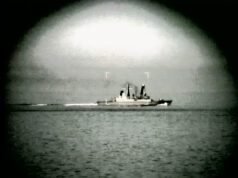
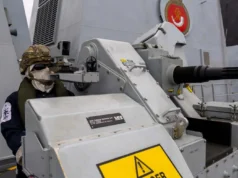


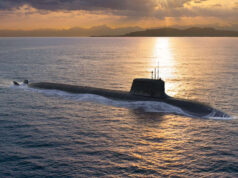

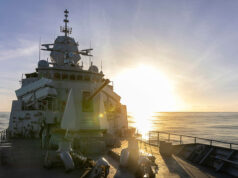

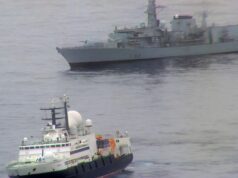
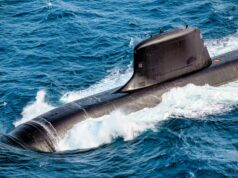

So committed that this gov refused to give them a loan or any other kind of support and is now going to sit back and let the Spanish state take ownership.
They’re not sitting back They’re checking if paying Navantia 300m more is state aid 🙂
Aren’t they the chappies that built the Armada ?
Concerned frustrated shareholder.
It’s been reported Navantia want another £300m by sky news. Will be hilarious if this is due to Navantia taking over H&W which only wanted a loan guarantee for a lesser amount.
Problem is that the guarantee probably wouldn’t have been enough.
There was a lot of wishful thinking involved in the plan.
I think your right, even with the loan guarantee, H&W was still likely to go under with the interest rates they where facing which means the government lost £200m and would still be paying Navantia £300m or significantly more to bail them out.
I’m thinking Navantia has told them if you can’t provide the £300m then we will just build the entire ship in Spain.
Unless they solve RFA Pay and conditions they will have no one to crew it!!!!
Aren’t they the chappies that built the Armada ?
Concerned frustrated shareholder.
I was in Belfast last week, staying at the Titanic Hotel (once H&W’s Head Office) beside the now much shrunken H&W site. I had a walk/drive around the perimeter roads and sadly the shipyard and construction dock seemed deserted, with no visible refit, construction or any other work being undertaken. It will be a long way back to get it ready for the construction of the FSS’s. I just hope we don’t have a repeat of the Swan Hunter saga in the early 2000’s, when it became obvious that the rundown and penniless company just wasn’t up to the job of being the lead shipyard for the LSD(A)’s, and was eventually stripped of the contract, with the incomplete Lyme Bay being towed from Newcastle to Govan for completion by BAE. The RN and RFA badly needs the LSS’s – delivered on time and too budget – and if that involves removing H&W from the contract so be it. How many employees do they actually have at the moment in Belfast – the claimed 500 seems PR fantasy, I would wager that it’s well under 100 full-time employees, excluding contractors, zero hours and part-time workers. Some googling suggests that 30-40 FTEs might be the correct number, with an extreme low of just 5!